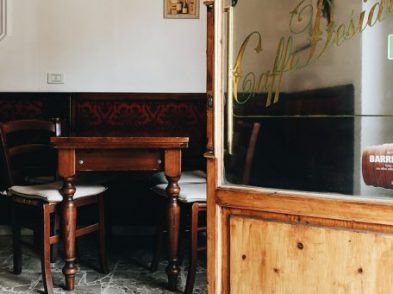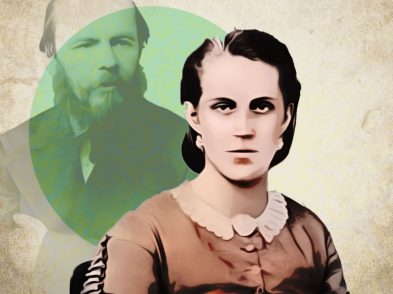Florence is a city that has spawned many illustrious and famous names, from Dante to Machiavelli to most of the Renaissance artists to Galileo. But more recently, in the last hundred and fifty years or so, Florence’s most famous citizens have all been foreigners. Inspired by the Tuscan sun, the art and the carefree lifestyle, creative intellectual types such as many of the great romantic English poets, Russian artists, and American art collectors, have all made Florence their home at one point or another. One such couple is Robert and Elizabeth Barrett Browning, the Victorian poets who may perhaps be even better known for their runaway romance than for their poetry.
The pair eloped, escaping the stuffy atmosphere of London and Elizabeth’s strict father, and moved to Italy, first to Pisa which they found incredibly dull, and then to Florence in 1847. Initially they rented an apartment on Via delle Belle Donne, with the intention of moving on to Venice three months later. But they found themselves remaining in Florence due to Elizabeth’s delicate health, and they finally settled in to an apartment on Via Maggio, overlooking Piazza San Felice, which Elizabeth nicknamed Casa Guidi, unaware that they would end up staying for fourteen years.
After their first wedding anniversary, Elizabeth realised she had become entangled in a new love affair – with Italy. She loved Casa Guidi and wrote home constantly of “our Florence.” Watching from her balcony near Palazzo Pitti, she one day witnessed a joyful parade outside marking the civic guard promised by the Grand Duke, Leopold, as a result of the Risorgimento, Italy’s revolt against Austrian domination. It inspired her to write one of her most well known works, Casa Guidi Windows, a poetic essay in praise and defence of Italian liberty. She also wrote perhaps her best-known work, Aurora Leigh, here at Casa Guidi as well. Meanwhile Robert was influenced by the art history of the city, and went on to immortalise not only Giotto’s Campanile in Old Pictures in Florence, but also Filippo Lippi and his Uffizi Coronation of the Virgin in a poem published in Men and Women (1855) about Lippi’s infamously lustful nature as accounted in Giorgio Vasari’s Lives of the Artists.
In the Summers the Brownings would escape the inferno of Florence and go to places like Siena or more often, the fashionable Bagni di Lucca. On one such trip to Lucca, Elizabeth decided to finally reveal to her husband the forty-three sonnets she had written about him during their courtship three years earlier, which she secretly carried with her everywhere like an amulet. Needless to say, he was quite moved by them and later wrote that he thought he knew all there was to know about his wife until that day. These poems, to be published later as Sonnets from the Portuguese, are probably some of the most famous romantic love poems ever written, “How do I love thee? Let me count the ways”
Their happy marriage was even more fulfilled by the birth of their son, Pen, at Casa Guidi. Elizabeth’s health slowly declined though, and she died in the summer of 1861, in her bed, in her husband’s arms. Her last word was “beautiful,” her last gesture, a kiss. Her coffin was carried through the streets of Florence on a special route, reserved only for the honoured, and buried in the Protestant Cemetery in Piazzale Donatello at the end of Borgo Pinti. Above her tomb and on the front of her beloved Casa Guidi, plaques were erected to commemorate the poet from a “grateful Florence.” Such was the end of the Brownings’ happy and loving sojourn in Florence.
Casa Guidi is open to visitors from April to November, on Mondays, Wednesdays and Fridays, between 3 and 6pm. Just ring the doorbell, and you will be let in to the charming first floor apartment, which was restored and reconstructed in 1995 to look as it did when the Brownings lived there. Much of their original furniture is still there, as well as portraits, photographs and other memorabilia. Looking out of the balcony, you can picture Elizabeth Barrett Browning standing there with glee, watching the parade down below that inspired her Casa Guidi Windows poem. Casa Guidi is also available to rent from the Landmark Trust, for an unusual and inspiring stay. See www.landmarktrust.co.uk for more information.








